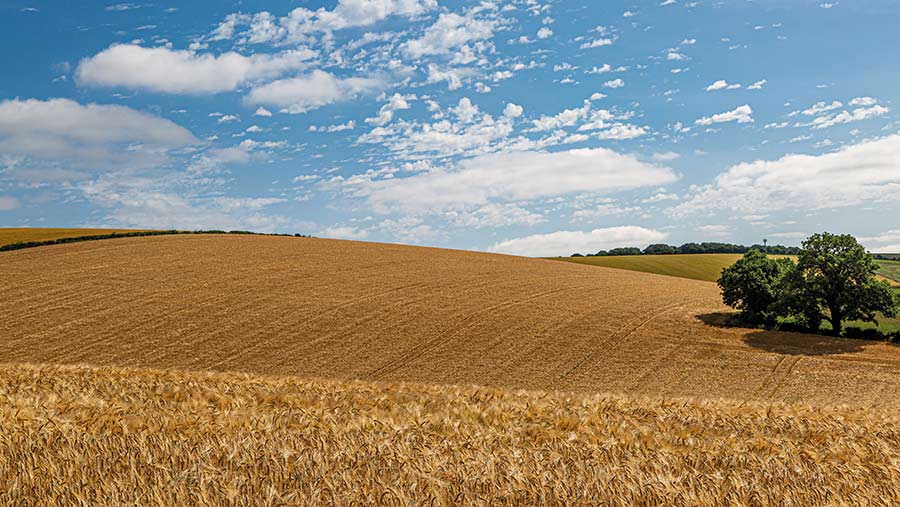Private sales rise in popularity to near 50% of land market
 © Adobe Stock
© Adobe Stock High-profile clients, farming neighbours and rollover buyers are all increasing the demand for private sales in an active market.
Private sales involve properties changing hands without having been advertised on the open market, through the negotiation of buying and selling agents.
Benefits include discretion, flexibility, saving time and money on marketing, and the possibility of an exclusivity premium, where the buyer is willing to pay extra to secure the property.
See also: Why we’re selling the family farm during coronavirus
However, this strategy doesn’t suit all sales, and as a vendor it is impossible to be sure that all potential buyers have been reached, or that the highest possible price has been achieved.
Greater control
Charlie Evans of CKD Property Advisers says private deals are becoming ever more commonplace, particularly at the top end of the market, generally involving extremely wealthy or high-profile people.
The trend was first intensified by the growth of the internet, where online advertisements produce a digital footprint, meaning everyone can see what has been bought or sold, he said.
Exchanging privately gives the seller more control about who sees what and when, and this can be particularly attractive when a large farming business with a number of employees or tenants is involved.
“There are more buying agents coming through and more buyers being represented, so the need to advertise to find buyers has been lessened,” said Mr Evans.
“Once the seller has advertised publicly, they can get stuck in that process for a long time. If the property doesn’t get a lot of interest or is still on the market eight-to-12 weeks later, you can be on the back foot when it comes to negotiating.”
There has been a surge of private sales in the past 12 months, he said, prompted by the effect of the Covid-19 lockdown and the subsequent uncertainty from both buyers and sellers on what was going to happen when the market reopened.
The higher the property’s value and the larger the acreage, the smaller the buying pool, so off-market transactions are most likely in this segment, he said.
“In the £5m-plus market, private and open market sales are about 50:50, while for £10m-plus there would be more private sales,” said Mr Evans.
“However, I can never see a day where the market is only traded privately.”
Huge demand
Alex Lawson, head of rural agency at Savills, agrees that a significant part of the market is taking place behind the scenes. Generally this is about a quarter or a third of sales, but in some areas it can be as high as 50%.
“There are two main strands to this. One is a lack of confidence in the strength of the market due to political, economic and pandemic-related concerns, although these concerns have been disproved,” he said.
“The other key reason relates to sellers’ attitudes. Some are happy to test the water and if a sufficiently attractive price is offered, they choose to sell. But they don’t want to try this approach in the public domain.”
The private market is active across all areas, but particularly so with bare land sales (where buyers are more likely to be neighbouring farmers, who want to avoid the risk of public competition) and the largest farms and estates (where privacy is often paramount), said Mr Lawson.
One recent Savills sale included 40 parties being approached privately, 17 viewings, a price agreed in excess of the guide, and an exchange, all within two months.
One recent Savills sale saw a property being prepared for the open market instead selling privately to a neighbour for a premium of well over 25%.
“I anticipate private sales will remain popular for certain sellers, but with increased supply, and therefore greater choice for buyers, public marketing may be more necessary because of the broader exposure it provides,” Mr Lawson said.
Buyer types
Ben Ainscough, director of Midlands-based land agent King West, said 40-50% of 400-plus acre farms in his area were being sold privately, up from 30% in 2018-19.
He has been involved with the off-market buying and selling of more than 1,000 acres of farmland in 2020-21.
“With land values remaining broadly stable across large parts of the Midlands but farm income down, there has been a decrease in the number of farmer buyers,” said Mr Ainscough.
“This has made knowing who the likely purchasers are easier, which includes rollover buyers with cash to invest from local development proceeds.
“Rollover buyers tend to have their own principle dwelling already and therefore look for commercial arable farms with suitable modern buildings situated within 25 miles of their existing holding.”
The trend towards private sales is unlikely to change until there is a significant increase in supply or change in buyer demographic, he said.
However, he added that decreasing Basic Payment Scheme income may result in more smaller farms being launched, which would likely appeal to lifestyle buyers rather than rollover buyers, and would therefore be more suitable to the open market.
